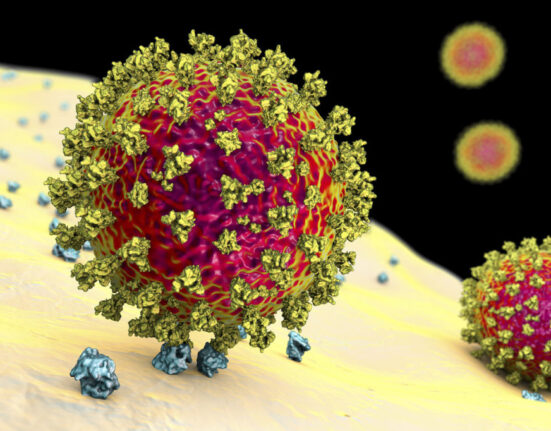A woman’s unexpected passing in Alaska has stirred up intense concern and fear within the community. The unfortunate incident involving a woman in her 50s sheds light on a potentially dangerous new development related to gonorrhea, a well-known sexually transmitted infection.
Health authorities in Alaska recently disclosed the distressing news that the woman succumbed to complications arising from an untreated gonorrhea infection that had spread throughout her body. This alarming event is just one of many similar cases that have been cropping up in the state over the last few years.
**Concerns Over Novel Bacterial Strains**
In their latest epidemiology bulletin, the Alaska Department of Health highlighted the escalating problem posed by these unique strains of bacteria behind several recent incidents. Gonorrhea, caused by Neisseria gonorrhoeae bacteria, is a prevalent STI globally, with over 600,000 cases reported in the U.S. alone in 2023.
The symptoms associated with gonorrhea can range from unpleasant genital discharge and bloody urination to more severe issues like swollen testicles and abnormal bleeding between periods for women. However, what makes this infection particularly insidious is its tendency to remain asymptomatic in some individuals. This stealthy nature can lead to complications such as infertility and an increased susceptibility to other sexually transmitted diseases (STIs).
**The Havoc Wrought by Disseminated Gonococcal Infection**
While gonorrhea typically targets areas like the genitals or throat, there are rare instances where it spreads throughout the body resulting in what is known as disseminated gonococcal infection (DGI). When left unchecked, DGI can manifest as diverse health problems ranging from arthritis to skin lesions and even life-threatening conditions if it reaches vital organs like the heart or bloodstream.
The recent fatality was traced back to septic shock and heart failure triggered by endocarditis—an inflammation affecting the heart’s inner lining due to widespread dissemination of gonorrhea bacteria throughout her system. Although occurrences of DGI leading to death are uncommon, there has been a troubling surge in reported cases across Alaska since 2023.
**Mysterious Increase in Cases**
The spike observed during 2024 saw 24 documented DGI cases—a threefold rise from eight cases reported in 2023 and ten times higher than those recorded in 2022 (two cases). The trend has persisted into 2025 with eight confirmed instances thus far—numbers significantly exceeding typical averages both locally and nationally.
Many patients affected by this uptick experienced minimal or no symptoms prior to developing DGI despite lacking identifiable risk factors for STIs or testing negative on conventional screenings for gonorrhea. While investigations have yet to pinpoint specific transmission routes linking these incidents together, health officials suspect that emerging bacterial strains could be fueling this upsurge.
**A Call for Vigilance**
In response to these concerning developments, health authorities have issued warnings urging residents—especially those engaging in risky sexual behavior—to prioritize regular testing every three to six months given their heightened vulnerability towards contracting severe forms of DGI linked with certain strains of N. gonorrhoeae.
Amidst these grave concerns looms another vexing issue—escalating drug resistance among various strains of gonorrhea against frontline treatments. Instances of super-resistant
“super”
gonorrhea are slowly gaining ground across different regions including Canada—a worrying trend that underscores our ongoing battle against evolving infectious threats.









Leave feedback about this